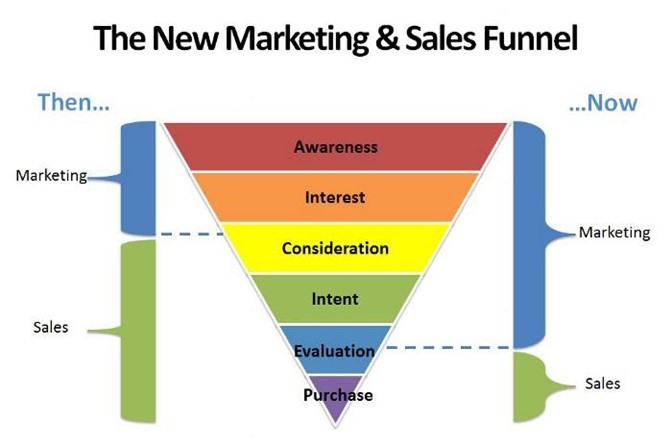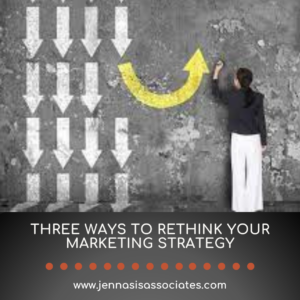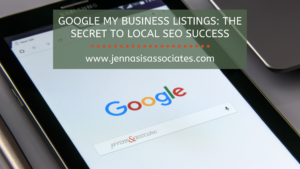The increasingly crowded digital marketplace requires businesses to be on the lookout for new ways to attract, engage and retain customers. In the search, don’t overlook one of the oldest sales strategies—the sales funnel.
Businesses have relied on sales funnel strategies for more than 100 years, and for good reason. Sales funnels help businesses avoid the trap of trying to turn every customer into a sale. Instead, businesses use sales funnels to identify and stay laser-focused on those prospective customers who are most likely to buy a given service or product.
Today, smart business leaders are using sales funnels to also benefit marketing efforts. Just as sales teams aren’t chasing after every potential sale, marketing teams can use insight gleaned from the sales funnel process to tinker with marketing tactics.
As we’ve seen, there is no one-size-fits-all approach for effective marketing that leads to sales. An effective digital marketing strategy is tailored to customers’ individual and changing needs leveraging a modern sales and marketing funnel model.
What is a Sales Funnel?
Before you get started on a sales and marketing funnel strategy, it’s important to understand how a sales funnel functions. Simply put, it’s a concept or metaphor for the process a consumer takes to becoming a buyer.
In the funnel metaphor, businesses track customers’ interest in a product or service as customers “move” down the funnel, from awareness through to purchase.
As the name implies, the sales funnel is wide at the top and becomes increasingly narrow toward the bottom as the process is refined to focus on high-value customers. While the funnel process is uniform, the sales and marketing tactics used to move prospective customers’ through the process will vary depending on the product or service.
For example, the tactics a clothing retailer’s sales funnel will be different from the sales funnel for a professional service such as accounting or legal services. The clothing store owner’s sales and marketing funnel might be fueled by tactics such as social media and traditional advertising. A lawyer seeking new clients might rely on webinar invitations or publishing thought leadership.
Regardless of the product or service, the modern sales and marketing funnel process Jennasis & Associates leverages is broken into six stages that describe the prospective customers’ journey.
6 Key Sales Funnel Stages:
- Awareness. As it sounds, the awareness stage is that point in the sales process where a prospective buyer learns about a product, service, and/or business.
- Interest. After becoming aware, ideally the prospective buyer is interested enough to take the initiative to do their own research and learn more about the product, service and/or business.
- Consideration. This transitions to the consideration phase, where prospective buyers are actively looking for signs a given product, service, and/or business is a solution to their specific problem or need.
- Intent. Prospective buyers may then expand their search to get a more complete view of their options with the intent of making a decision.
- Evaluation. Those who are still interested will move on to comparing products or services with similar businesses as part of the decision-making process.
- Purchase. A prospective customer has reached the final stage of the funnel if, after evaluation, they decide they want the product or service in question and complete the purchase.

Understanding the funnel infrastructure is an essential part of the next step–establishing a sales and marketing funnel strategy to drive leads (and thus revenue) for your business.
Establishing a sales funnel strategy
There are two important initial steps to developing a sales funnel strategy that maximizes marketing collaboration.
The first step is to review your business plan or sales strategy for insight into your target market—those prospective customers most likely to be attracted to your product or service. As you review your business plan and sales strategy, be sure to gather information on how you can effectively connect with your prospective customers.
What you know about your prospective customers is core to creating awareness, which is the first stage for any sales and marketing funnel. The awareness stage typically is launched via marketing campaigns laser-focused on your prospective customers.
The second step is deciding which of the many types of funnels will be most effective for your unique sales cycle, given the specific product or service that you’re offering and habits of your consumers.
Types of sales funnels
There are as many types of sales funnel strategies as there are products and services to be sold. You need to choose the right funnel setup based on your specific company revenue goals.
For example, if your sales strategy calls for pushing webinar signups specifically, you can design a funnel just for that purpose. On the other hand, if you’re looking to generate leads in general, there are other funnel formats that might work better leveraging multiple marketing channels and tactics.
Seven common digital sales funnel formats, as detailed by Success Unscrambled, include:
- Lead generation funnel: The sole purpose of this funnel type is to generate leads for your business, and is typically built around a content marketing campaign to attract and nurture leads.
- Lead generation and sales funnel: With the same purpose in mind, this type of funnel focuses on income generation for your business incorporating an automated email drip campaign.
- Self-liquidating offer funnel: An SLO funnel focuses on securing paid web traffic, with the intent of recouping the cost of your business’ digital ad spend.
- Automated webinar sales funnel: Formatted around the sale of high-ticket or high-end offers, this funnel format leverages a discovery call or webinar to attract and nurture leads.
- Affiliate sales funnel: If you’re looking to push products or services created by others rather than your own business, an affiliate sales funnel is designed around the promotion of affiliate purchase links.
- Challenge sales funnel: Designed to generate leads as well as revenue, this type of funnel involves setting up a temporary Facebook group to run a “challenge.”
- Discovery call funnel: Requiring very few leads, unlike the other funnels detailed, this type works well for service providers and/or coaches who don’t need an entire website. Instead, a landing page will do, encouraging leads to set up a call with you directly.
Drive leads for your business with a robust digital marketing strategy
Understanding the nuts and bolts of sales and marketing funnels is a great start to creating your own custom funnel strategy. The strategy comes to life with the tactics used to attract and engage high-quality consumers—with the ultimate goal of convincing them to take an action, like make a purchase.
However while knowing your end goal may give you an idea of the big picture, it can be difficult to actually design and execute the granular details along each phase of the marketing funnel to achieve it. Which marketing tactics work best at which stages? What messaging do you need to incorporate, and via which digital channels?
Picking the right marketing tools and tactics is crucial to not only attracting but keeping high-value leads engaged and moving from the top of your funnel through to the end.
This is where a digital marketing partner like Jennasis & Associates can help. Our diverse team can provide the strategy expertise needed to not only design your sales and marketing funnel strategy, but provide the resources to execute it, provide analytics reporting, and adjust as needed based on real-time data.
Reach out to us online or at digitalmarketing@jennasisassociates.com for more information about our digital marketing expertise—and how our team can help drive more leads from the top to the bottom of your sales and marketing funnel!

Drez Jennings has pursued her passion for writing and editing as a journalist covering crime and politics, and as a media relations and marketing communications pro supporting large financial services, healthcare, and legal businesses. Drez lives with her husband Mark Wainwright in a 100-year-old Arts and Crafts home in eastern Lake County. Fun fact: all of Drez’ pets are named for musicians. Now on stage – black Lab Joe Walsh, and cats Jerry Garcia and James Brown.





